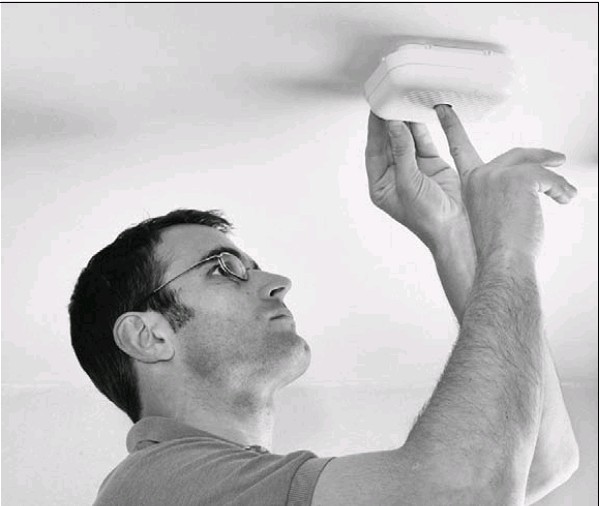They must be in place now, but strata corporations must find out who’s responsible for them
Tony Gioventu
Province

Dear Condo Smarts: We received a notice that the government brought in new regulations regarding mandatory smoke alarms in residential buildings. Our council gave notice to all the owners in our complex regarding the requirements for the smoke alarms, but several owners have refused and come back to the strata council and demanded that we install the smoke alarms. We don’t know how we are supposed to enforce the regulations. We are a strata of detached town homes, and the strata has no authority or obligation to maintain or repair the inside of the strata lot. We are concerned that this might put our insurance in jeopardy, and council is afraid of being sued if we don’t bring our buildings up to date. So how can we get our owners to co-operate?
— J.S. Myers, Nanaimo
Dear Ms. Myers: The B.C. Fire Code requires that every residential building built before March 31, 1979 shall have a smoke alarm installed by May 1, 2010. This new law applies to every private home, suites within apartment buildings and sleeping rooms such as those found in hotels or motels.
It also includes strata-titled residential buildings. Owners of these buildings are permitted to install battery-operated smoke alarms rather than alarms that are connected to the building’s electrical system.
Before any strata corporation can determine who is responsible for the smoke alarms or fire-safety systems, it needs to first understand whether the system is part of the strata lot, part of the common property, or a system that forms the common property. Once you understand where the responsibility lies, you then have to look at each of your bylaws to determine if your strata corporation is responsible for those portions of the services or safety systems.
The Strata Property Act sets out a definition for common property in Section 1. If it is common property as defined in the act, then it will fall on the shoulders of the strata corporation to inspect, maintain and repair the system.
A simple example of this relates to the emergency sprinkler systems in a condo building, where the entire system is interconnected and monitored by the strata corporation. This is routinely a common system that is inspected, maintained and repaired by the strata.
If you look at a typical older town house complex or condo before 1979, the interior services and obligations of most of the units are contained within the strata lot boundaries of that unit, and their services may not be part of a common system or interconnected; therefore, not part of the obligations of the strata to maintain and repair.
If a smoke alarm is not monitored or connected by the strata corporation, then it is the responsibility of each strata-lot owner to install his or her smoke alarms, maintain, and repair them. There are a few options for strata corporations. The first is a bylaw that reflects the requirements of the legislation, requiring smoke alarms in all residential units. The same bylaw may also set standards that require owners to maintain and repair the smoke alarms.
There still remains the challenge for the strata corporation to enforce the bylaws and inspect the units for compliance. Another option is for the strata corporation to adopt a new bylaw, where the strata corporation will be responsible for installing the smoke alarms and maintaining them annually. There are benefits to this bylaw in that the strata corporation can control the installation and service; you can gain the economics of cost.
For more information on the new regulations go to: www.housing.gov.bc.ca
Tony Gioventu is executive director of the Condominium Home Owners’ Association. E-mail: [email protected].
© Copyright (c) The Province

